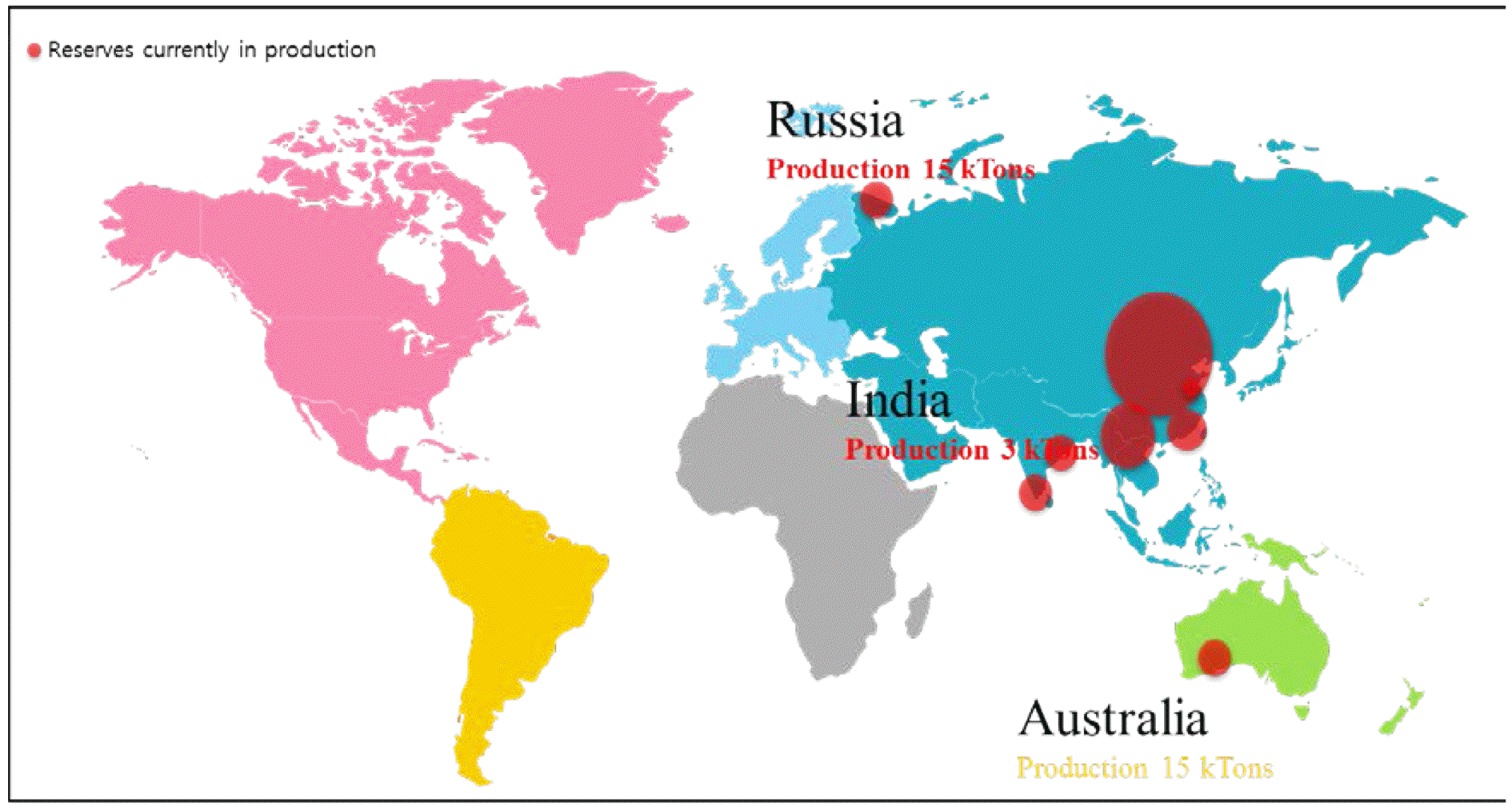Search
- Page Path
- HOME > Search
- [Korean]
- Russian Mineral Market Flow and Economic Direction for Securing Stable Resources
- Nu Si A Eom, Su Noh, Muhammad Aneeq Haq, Bin Lee, Kyoung Mook Lim, Bum Sung Kim
- J Korean Powder Metall Inst. 2019;26(4):345-349. Published online August 1, 2019
- DOI: https://doi.org/10.4150/KPMI.2019.26.4.345

- 857 View
- 2 Download
-
 Abstract
Abstract
 PDF
PDF With increasing demand for resources worldwide, Korea has been negotiating with resource-holding countries to achieve conservation of energy resources. Among them, Russia is the third largest resource-producing and exporting nation in the world and has several resource materials such as nickel, platinum group metals, gold, and other reserves. As a result, there is growing interest in cooperation between Korea and Russia. The aim of this article is to summarize the current status of market flow of Russian energy resources as well as Russia’s economic cooperation with Korea. Notably, South Korea needs to focus on investing in overseas mines for a stable supply of rare metals. Nevertheless, securing rare metals is a major task by understanding the flow and policy direction of Russian material mines.
- [Korean]
- Trends and Implications of International Standardization for Rare Earths
- Sardar Farhat Abbas, Sang-Hyun lee, Bin Lee, Bum-Sung Kim, Taek-Soo Kim
- J Korean Powder Metall Inst. 2018;25(2):165-169. Published online April 1, 2018
- DOI: https://doi.org/10.4150/KPMI.2018.25.2.165

- 1,007 View
- 7 Download
- 2 Citations
-
 Abstract
Abstract
 PDF
PDF Rare earth elements (REEs) are considered to be vital to modern industry due to their important roles in applications such as permanent magnets, automobile production, displays, and many more. The imbalance between demand and supply of REEs can be solved by recycling processes. Regarding the needs of industry and society, the International Organization for Standardization, Technical Committee 298 (ISO/TC298) Rare Earths has been recently launched for developing international standards on rare earth elements. In accordance with the suggestion of its constituents, it is tentatively working to develop the appropriate standards under five working groups (WG) on terms and definitions (WG1), element recycling (WG2), environmental stewardship (WG3), packaging, labelling, marking, transport, and storage (WG4), and testing analysis (WG5). The scope and structure of ISO/TC298 on the topic of rare earths is discussed in this document.
-
Citations
Citations to this article as recorded by- Synthesis and magnetic properties of Sm2Co17 particles using salt-assisted spray pyrolysis and a reduction-diffusion process
Tae-Yeon Hwang, Jimin Lee, Min Kyu Kang, Gyutae Lee, Jongryoul Kim, Yong-Ho Choa
Applied Surface Science.2019; 475: 986. CrossRef - Worker Safety in the Rare Earth Elements Recycling Process From the Review of Toxicity and Issues
Seo-Ho Shin, Hyun-Ock Kim, Kyung-Taek Rim
Safety and Health at Work.2019; 10(4): 409. CrossRef
- Synthesis and magnetic properties of Sm2Co17 particles using salt-assisted spray pyrolysis and a reduction-diffusion process
TOP
 KPMI
KPMI


 First
First Prev
Prev


